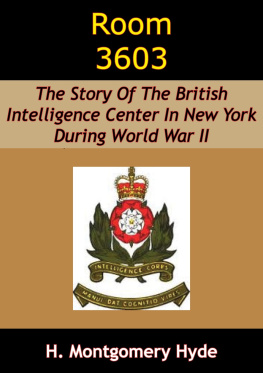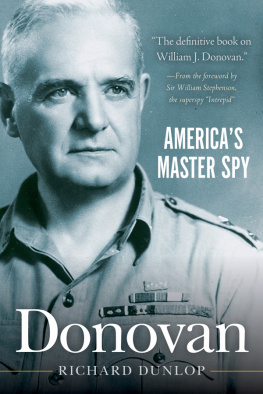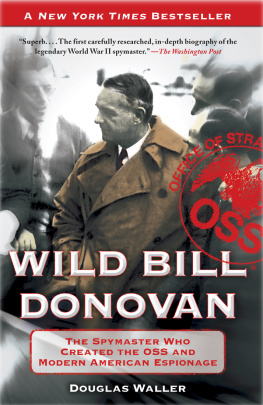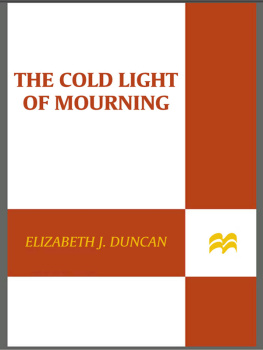A VERY PRINCIPLED BOY


Copyright 2014 by Mark A. Bradley
Published by Basic Books,
A Member of the Perseus Books Group
All rights reserved. No part of this book may be reproduced in any manner whatsoever without written permission except in the case of brief quotations embodied in critical articles and reviews. For information, address Basic Books, 250 West 57th Street, 15th Floor, New York, NY 10107.
Books published by Basic Books are available at special discounts for bulk purchases in the United States by corporations, institutions, and other organizations. For more information, please contact the Special Markets Department at the Perseus Books Group, 2300 Chestnut Street, Suite 200, Philadelphia, PA 19103, or call (800) 810-4145, ext. 5000, or e-mail .
Designed by Trish Wilkinson
Set in 11.5 point Minion Pro
Library of Congress Cataloging-in-Publication Data
Bradley, Mark A. (Mark Andrew), 1956
A very principled boy : the life of Duncan Lee, Red spy and cold warrior / Mark A. Bradley.
Pages cm
Includes bibliographical references and index.
ISBN 978-0-465-03665-3 (e-book) 1. Lee, Duncan Chaplin, 19-1988. 2. Moles (Spies)United StatesBiography. 3. Intelligence officersUnited StatesBiography. 4. United States. Office of Strategic ServicesBiography. 5. CommunistsUnited StatesBiography. 6. Espionage, SovietUnited StatesHistory. 7. World War, 19391945Secret service. 8. Cold WarBiography.
I. Title.
E748.L46B73 2014
940.54'8673092dc23
[B]
2013045461
10 9 8 7 6 5 4 3 2 1
To Daniel Patrick Moynihan,
who gave me the idea,
and to Liza, who made it possible.
We have two lives... the life we learn with and the life we live with after that.
BERNARD MALAMUD, THE NATURAL
Why isnt he in jail?
They cant get him, old sport. Hes a smart man.
F. SCOTT FITZGERALD, THE GREAT GATSBY
Contents
A s he did on most days, Duncan Lee rose early in his small apartment in Georgetown. He put on his US Army uniform and walked to work at the Office of Strategic Services (OSS), the forerunner of todays Central Intelligence Agency (CIA). Anyone who noticed him on the morning of May 21, 1943, would have seen a studious-looking twenty-nine-year-old man of medium height, with brown hair and gray eyes framed by round spectacles. Lee could have passed easily for just another soldier on his way to work in wartime Washington. Instead, he was the highest-ranking military officer inside the OSSs headquarters who was also a Soviet agent, one of the best-placed spies the Kremlins communist spymasters ever had inside any US intelligence agency.
When he arrived at 25th and E Streets, NW, Lee showed his identification card to the armed guards, walked through the gates, and headed down the slope to his office in the Secretariat, the OSSs communications hub. His desk was in Room 226, one floor above that of William Wild Bill Donovan, the OSSs colorful head and his mentor. Lee was one of the intelligence chiefs personal gatekeepers for secret reports and cables from all over the globe, and Donovan kept the Yale- and Oxford-educated Rhodes scholar close. Lee was also one of the newly appointed generals favorites.
On May 21, as Lee leafed through hundreds of cables and reports that streamed in from the OSSs overseas stations and the State Department, one in particulara secret interoffice memo dated that very day from Whitney Shepardson, head of the spy agencys Secret Intelligence
One of the documents, SA 4489, British Government Reactions to Russo-Polish Crisis from the OSSs London station, was dated April 30, 1943, and discussed the growing rift between the Soviet Union and the exiled Polish government in London over determination of their nations postwar boundaries. It also highlighted the differences this tension was causing between British prime minister Winston Churchill and Anthony Eden, his foreign secretary. Before he passed Shepardsons sheaf of papers to Donovan, Lee sat at his desk and read SA 4489 over and over until he had memorized it.
Sometime within the next week, a tall, large-boned woman with short, curly brown hair visited him at his apartment. When he opened the door, Lee invited the woman he knew only as Helen into his small living room. He had been expecting her because she regularly came to see him every two weeks.
Perhaps after some brief pleasantries, Lee motioned to his couch and sat down next to Helen. Speaking barely above a whisper for fear that the Federal Bureau of Investigation (FBI) had bugged his apartment, he meticulously and slowly recited Shepardsons reports.
Almost a year earlier, when Lee had first agreed to pass the OSSs secrets to the Peoples Commissariat for Internal Affairs (NKVD), the Soviet Unions intelligence service, he told his handlers that he could not take classified documents home; instead, he would memorize any useful reports and recite them back to his controller. Lee had good reason to take such precautions, despite the OSSs notoriously poor security: he knew he could be executed if caught.
Helen was in fact Elizabeth Bentley, a seasoned courier for the Peoples Commissariat of State Security (NKGB)the NKVD had changed its name in April 1943who had been educated at Vassar and Columbia. She knew better than to press the nervous and high-strung Lee for documents. He was too valuable to her Soviet masters to risk losing. Instead, Bentley listened intently and absorbed the information he relayed. Only later, after she had said good-bye and hurried to Union Station to catch her train back to New York, would she write down what he had said.
This was the same secret information that Lee had read in SA 4489 on May 21. Joseph Stalin, the Soviet Unions iron-fisted dictator, eagerly sought this kind of intelligence; he wanted the British and Americans to agree to allow his country to keep all the land it had forcibly wrested from Poland in 1939. He was enormously interested in any window his spies could open onto what Churchill or President Franklin Roosevelt, his two wartime allies, might be plotting with regard to the Soviet Unions borders after the fighting with Adolf Hitler ended.
Lees secret information from London highlighted his great potential as a spy and underscored his access to valuable intelligence headed directly for Donovan. As early as September 8, 1942, the NKVDs files on Lee in Moscow trumpeted that agent reports from Europe and all over the world go through him. He chooses among them and shows them to Donovan for his consideration.
M ost Americans have heard of Aldrich Ames and Robert Hanssenone a CIA turncoat, the other a traitor working for the FBIbut not of Duncan Lee. The son of missionaries and the descendant of famous Americans, this husband and father spent three years fighting Nazi Germany and imperial Japan in the cause of democracy and freedom. At the same time, he was spying for the Soviet Union.
Unlike Ames and Hanssen, Lee did not commit espionage against the United States out of greed or egotism. Rather, he chose his political leanings and conscience over his country and government, even though doing so meant breaking its laws and betraying the very men who had recruited him into its intelligence service. Behind bars for life, Ames and Hanssen are still paying for what they did, but Lee got away. This book tells the story of why he spied, how he eluded his pursuers, and the personal and national consequences of his actions.
Next page









